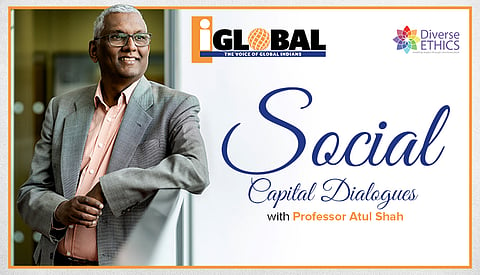

Last week, Lord Prem Sikka invited me to a unique seminar in the House of Commons – Patriotic Millionaires who think that wealth is creating sharp inequality in Britain, and this is unsustainable. Yes, that is correct, a group of wealthy people are keen to pay MORE tax, and think that the system is unfair in that the working people pay more taxes than those who earn money through their wealth, properties and other assets, commonly known as ‘unearned income’. World-famous research by Thomas Piketty has shown that inequality all over the world has been growing in the last fifty years, and everywhere, the poor are getting poorer, and the middle classes are getting squeezed. Patriotic Millionaires have their own website and campaigning organisation, and are actively recruiting more people to sign up to their cause.
Many people do not like paying tax. However, there are also people who are proud to pay taxes, even very high taxes, like in Scandinavian countries, because they directly see the benefits of public goods, services and welfare. Can you imagine having to build your own road, school, or hospital, and to grow your own water system and electricity grid, not to mention a private police force, and ‘private’ filters for your air and testing of food safety before eating it? The world would break down and simply could not function. However, it is a fact that in business, tax is treated as a cost rather than a share of profits rightly due to government for providing essential services.
MORE LIKE THIS…
Corporations make every effort to minimize their taxes, reducing the ability of governments to support society. Workers taxes are deducted before they get their wages, and sales taxes are incurred equally by the poor, who pay a disproportionate amount of their income on tax. The rich are able to hire expert accountants and lawyers to minimise their taxes, such that wealthy millionaires, or companies like Amazon or Google pay minimal taxes, despite being the wealthiest and most profitable.
The Patriotic Millionaires are saying that there is no fun in being rich in a dying world, where there is growing poverty, crime, environmental pollution and worsening healthcare. It is simply unsustainable. It destroys democracy because the rich and the powerful are able to influence politicians and government policies. Members really admire the work of ordinary people and volunteers who build local communities, and help the needy in spite of limited resources. They value brotherhood, and don’t want to be seen as being above everyone else, but as their equals. Social capital is more important to them than private capital and wealth. They respect the hard work put in by teachers, cleaners, nurses, street vendors, artists, carers, and do not think that the only measure of success is how much money you have.
Over decades, Lord Sikka has conducted original research which has exposed the structural, political and economic inequalities created by modernity, and exposed the fact that our science and teaching also needs to change to ensure young people are able to see beyond the lies taught by economics. Wealth is not the only measure of happiness. Poverty does need to be alleviated by society, and the market is not the only mechanism for doing so – governments have to actively reduce inequality.
MORE LIKE THIS…
Recently he asked a question in the House of Lords as to why it is that unearned income is taxed at a much lower rate than earned income, and the Minister had no answer to this. The environment has long been seen as a resource rather than something to be cared for and protected. These ideas have been deeply woven into accounting and finance training and we saw recently how even EY, a top global accounting firm was fined 100 million dollars for cheating in ethical tests. Public service and personal responsibility should be deeply entrenched in business education, but it is not. In Indian history, such ideas were rooted in Dharmic communities, and selflessness, not selfishness, was seen as a virtue. This is how we learnt to grow families into communities. Let us bring that spirit of equality and mutuality back.
Professor Atul K. Shah [@atulkshah] teaches and writes about Indian wisdom on business, culture and community at various UK universities and is a renowned international author, speaker and broadcaster.